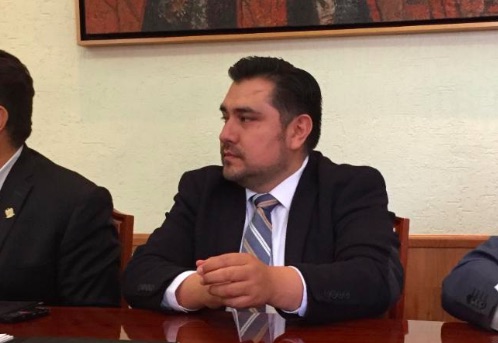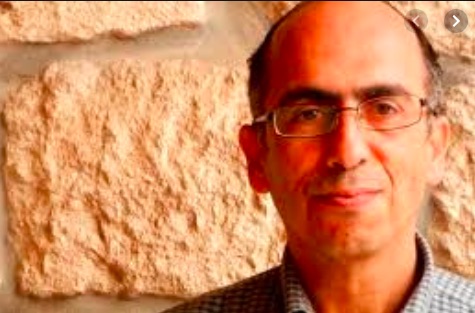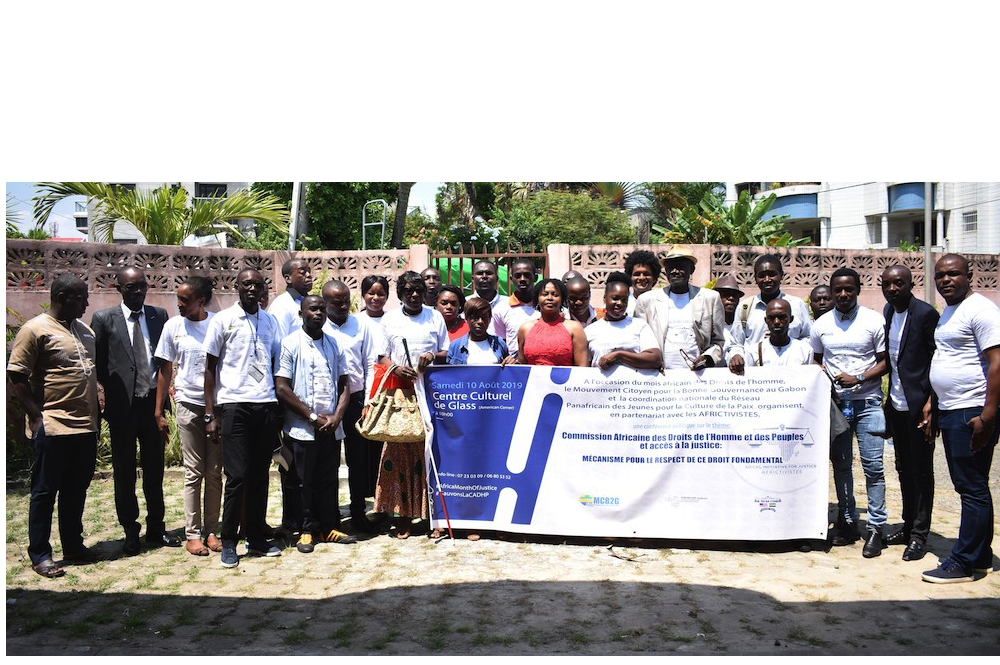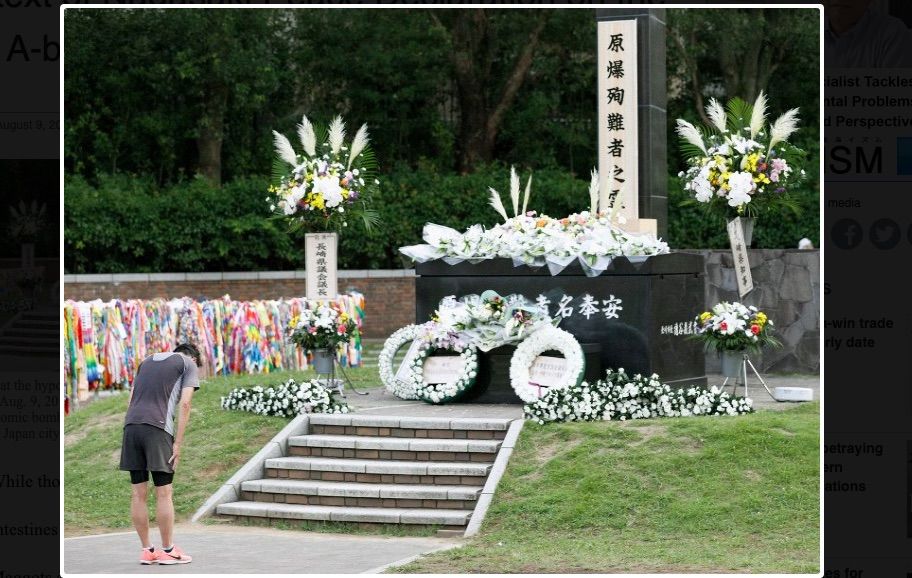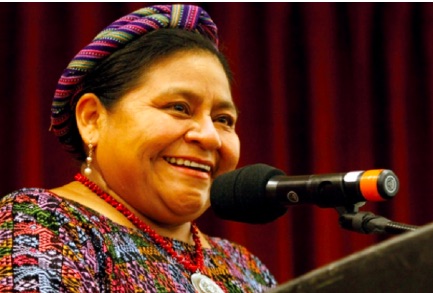TOLERANCE AND SOLIDARITY .
A report from Democracy Now (licensed under a Creative Commons Attribution-Noncommercial-No Derivative Works 3.0 United States License)
AMY GOODMAN: This is Democracy Now!, democracynow.org, The War and Peace Report.
I’m Amy Goodman. “My camera is my gun.” Those are the words of a celebrated Palestinian journalist who’s been reporting on the Israeli occupation from the West Bank for more than six years. But Janna Jihad isn’t any journalist. She’s just 13 years old. She started telling stories about her home of Nabi Saleh when she was only 7, after her cousin and her uncle were killed in the village. Since then, Janna has shared countless videos about Palestinian resistance with viewers around the world, on Twitter, on YouTube, on Facebook, garnering tens of thousands of followers. This is a clip of Janna Jihad confronting Israeli soldiers in the occupied West Bank last year, in 2018.
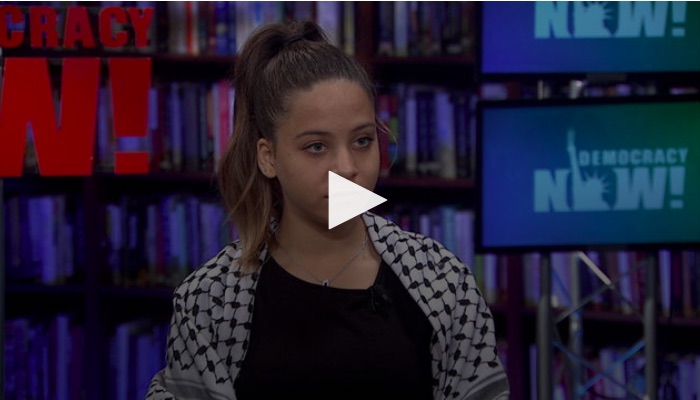
Video of interview with Janna Jihad
JANNA JIHAD: From here, as you can see, those terrorist people, humans with no humanity, are coming to our land, trying to kill children and to make children get injured. From here, we’re sending our message and saying that Palestine will be free. From Nabi Saleh, Janna Jihad, occupied Palestine.
AMY GOODMAN: You hear that sign-off: “From Nabi Saleh, this is Janna Jihad, in occupied Palestine.” Janna is the cousin of Ahed Tamimi, the teenage activist who became a heroine to Palestinians after a viral video showed her slapping an Israeli soldier near her family’s home in the occupied West Bank. It was right after she had learned her cousin had been shot in the face by an Israeli soldier.
Janna Jihad is in the United States this month to share her stories about Palestine around the country. She joins us now in our New York studio.
Janna, thanks for making this stop.
JANNA JIHAD: Thank you. Thank you for, like, letting me come here and just, like, to speak more about my issue and, like, about my message as a Palestinian child.
AMY GOODMAN: So, when did you pick up your cellphone to start videoing? And was it your cellphone?
JANNA JIHAD: So, it was my mother’s cellphone. I was only 7 years old when I started doing journalism. It was when I saw that there were not enough journalists to cover things that happened in my village, Nabi Saleh, and also in Palestine in general. Like, when my friend Mustafa was killed, my uncle Rushdie was killed, a lot of things were happening, and the world didn’t know about how we, as Palestinian children living under this Israeli military occupation, are living, how we’re suffering, how we’re — like, how our rights are getting violated, our childhood is not given to us. So I wanted to be the voice of those children and to just be the messenger of their message, which is very important, and to raise awareness about this very important international issue.
AMY GOODMAN: So, at 7 years old, you take your mom’s cellphone, and you start videoing.
JANNA JIHAD: Yeah.
AMY GOODMAN: And posting those videos.
JANNA JIHAD: Yeah.
AMY GOODMAN: You say your camera is your gun. What do you mean?
JANNA JIHAD: So, I always say that my camera is my weapon of choice, because using my camera, it’s a very peaceful and nice way to resist this occupation. And by using my camera, I can send a message, and it can be even more effective than a gun, more effective than violence, more effective than killing people.
AMY GOODMAN: How do Israeli soldiers respond to your videoing?
JANNA JIHAD: Of course, it’s pretty hard. Like, for example, last year I got — the Israeli Ministry of Strategic Thoughts made a secret report about me, saying that I’m the next threat on their country.
AMY GOODMAN: Wait, wait, wait. You have to repeat what you just said.
JANNA JIHAD: OK.
AMY GOODMAN: The Israeli Ministry of?
JANNA JIHAD: Of Strategic Thoughts.
AMY GOODMAN: How do you know about this report on you?
JANNA JIHAD: OK, I’ll explain. So, the Israeli Ministry of Strategic Thoughts made a secret report about me, saying that I’m the next threat on their state. And this report was revealed by the Israeli fourth news channel. And after that, I got a lot of threats, intimidations by the Israeli street. And after that, I got registered by the Palestinian Journalists Syndicate. And, yeah.
AMY GOODMAN: So, you are the youngest press card-carrying journalist in the world. You just turned 13.
JANNA JIHAD: Thirteen, yeah.
AMY GOODMAN: What does that mean? How does that protect you to have that press card?
JANNA JIHAD: So, I’m the youngest Palestinian registered press card-carrying journalist in the world. So, I got registered after this report was revealed. And it was also right after I was stopped on the border. I was only 12 years old and four days, when I was stopped while coming back from Jordan on the Israeli border, and was interrogated for three hours. And it was, of course, illegal, because, like, if a minor got interrogated, in the international law, I have to have my parent or a lawyer, and I didn’t have any of those. And it was pretty hard for me. And after that, I got registered, which would be like a bit of protection, although it’s not really protection, because all of the journalists get killed, arrested and injured in the occupied Palestine. But it helps a little bit, you know? Yeah.
AMY GOODMAN: I want to turn to your cousin, Ahed, for a moment, Ahed Tamimi, the young Palestinian activist who served an eight-month term in Israeli prison. She became a heroine to so many Palestinians and many others around the world, when video went viral showing her slapping an Israeli soldier near the family’s home just after Ahed had learned her cousin had been gravely wounded by an Israeli soldier, who shot him in the head using a rubber-coated steel bullet. We got a chance to speak with Ahed soon after she was released from prison, and we asked her about the conditions in the jail.
AHED TAMIMI: [translated] There were women, and there were children. There was one woman who had been detained under administrative detention. Administrative detention means the detention is based on undisclosed files, so the detainee doesn’t know why they’re detained. Administrative detainees only attend administrative courts, and their sentence is always extended. At first, it might be six months, but it’ll be renewed another time for four months. They’ll tell you your administrative detention is six months, but then, after six months, they’ll tell you they’ve extended another four. After four months, they’ll tell you another six. It’s like the prisoner — may God rest his soul — Ali Jamal, who spent seven consecutive years under administrative detention.
There are over 350 children in prison, and three children who are under administrative detention. The conditions children endure in prison are very difficult. Prison isn’t for anyone. And the prison administration puts a lot of pressure on them, so it’s very difficult. I hope for the release of all prisoners, and especially children, as soon as possible.
AMY GOODMAN: So, that is Ahed Tamimi. We were speaking to her in front of her house. She was broadcasting from there to our New York studio, where I got a chance to interview her. She is 18 years old. She was jailed when she was 16, turned 17 in prison. What has Ahed’s activism meant to you? Tell us about Nabi Saleh, where you all live.
JANNA JIHAD: So, Nabi Saleh is a very small village, 500 people living there. It’s like so small. Also, we have an Israeli illegal settlement built on the land in Nabi Saleh, which is only 50 meters far from the village. And there is a checkpoint on the entrance. It’s very small. We’re all one family, which is the Tamimi family. Ahed is my cousin and my best friend. She was always. You know, I am the only child, and she has no sister, so we are always together and stuff. And yeah, Ahed is like — we’re really close. We always have been going to demonstrations and marches and like everything together. And it’s pretty nice, yeah.
AMY GOODMAN: And what was it like for you when she went to jail? She went to jail for slapping an Israeli soldier. So, she had just learned that your cousin, her cousin, had just been shot in the head by a rubber-tipped steel coated bullet?
JANNA JIHAD: Yeah. So, if you want, I can tell you Mohammed’s story, which is our cousin who got shot in the head, which was — he was just like literally playing. The soldiers were in the village for a couple of — for the past couple of days. And they were just shooting gas canisters randomly. There were no demonstrations, no clashes, no anything. It was just them raiding the village. And it was like right after Trump’s declaration that Jerusalem was the capital of Israel, and a lot of stuff, like, were happening in the West Bank and, you know, like a lot of demonstrations and stuff. And it was that time.
So, Mohammed was playing with his friends, soccer, on the mountain. And he was just — so, like, you know, shooting, it’s pretty normal for us, and we would play outside, because, like, you know, it’s always happening.
(Article continued in the right column)
Question for this article
Presenting the Palestinian side of the Middle East, Is it important for a culture of peace?
(Article continued from the left column)
AMY GOODMAN: What’s always happening?
JANNA JIHAD: When, like, the Israeli occupation forces would just like start shooting gas canisters randomly. And then, suddenly, that shooting stopped. So, Mohammed thought that somebody got arrested or somebody got injured. So he was right next to that wall. It’s not a separation well, but it’s a normal wall. And he had a ladder. So he just climbed that ladder and wanted to see if something happened. And in the same moment, he climbed that ladder and just like took a look. The Israeli military soldiers were right under the wall. And one of them just shot him with a rubber-coated bullet, which came right here, right next to his nose, and was stuck in his brain. And he was in a coma for seven days. He lost a whole one-third of his skull. And he was under treatment. He had got arrested even three times while he was treated.
And after that — so, the problem about the world is that they only see the slap, but they don’t see the whole story. So, after that, the same soldiers just came right next to Ahed’s house and wanted to enter, because Ahed’s house is in a, like, pretty high area, so they can pretty much see everyone. They wanted to go to the roof of Ahed’s house and just like shoot.
AMY GOODMAN: Of Ahed.
JANNA JIHAD: Yeah.
AMY GOODMAN: Who, at the time, was 16.
JANNA JIHAD: Yeah. They wanted to go to her house, to her properties, and start shooting more children. And Ahed was pretty much — she didn’t want them to go into her house, pretty much. And then he started pushing her, and then she slapped him. And that’s why she got arrested for eight months.
AMY GOODMAN: I mean, you’re sitting here telling us this story. You’re telling us a story of when you were like, what, 10, 11 years old. Your cousin is shot in the face, is shot in the head, and now he’s lost a third of his brain or his skull in the process. How does this affect you as a child? How do you process this?
JANNA JIHAD: So, of course, a lot of difficult stuff for us as children living under this occupation happens. Like, for example, I saw a lot of people in my life getting killed in front of me. I was trying to — you know, we all — like, we get traumatized. We’re humans. You know, it’s pretty hard for us to process all of that. But we always believe that we want freedom, and wanting freedom is not easy. We have to pay the price of freedom. And the price of freedom won’t be that cheap. It’s going to be pretty expensive. A lot of people are going to get killed. A lot of people are going to get arrested. A lot of people are going to, like, get injured. But our main goal is to liberate Palestine, to live in freedom, love, peace and equality and justice, like any other human and child deserves to live.
AMY GOODMAN: You recently put out on Facebook the story of Mahmoud Salah.
JANNA JIHAD: Yeah.
AMY GOODMAN: Who you say was shot in the leg by an Israeli sniper.
JANNA JIHAD: Yeah.
AMY GOODMAN: Tell us what happened to him. What were the circumstances, and what has since happened?
JANNA JIHAD: So, Mahmoud Salah is a child from the village of al-Khader, next to the city of Bethlehem. So, Mahmoud Salah, he was playing after Iftar in Ramadan with his friends. He was playing soccer in the street. And his house is like basically right next to the separation wall. So, he was playing soccer, and then the soccer ball just went right next to the wall, so he went there to fetch it.
And then those Israeli soldiers in the tower shot him with a live munition, for basically no reason, in the leg. And his friends were trying to go help him, but those soldiers were faster than his friends, surrounded him. And they were shooting at his friends and didn’t allow anybody to come close to him — his family, his mom, his dad or anyone.
So they arrested his body. He fainted. He wasn’t even knowing what’s happening around him. And then, like, they didn’t inform the family about anything. After two days, they didn’t know anything about him, where was he, what happened to him. But he was at — he woke up, after two days, in an Israeli military hospital. And he had his leg cut off.
AMY GOODMAN: His leg was amputated.
JANNA JIHAD: Yeah, his leg was — like, he lost his leg, basically. And, like, none of his family was informed. And right now he’s under arrest even, for no reason, no charges. And —
AMY GOODMAN: How old is he?
JANNA JIHAD: He’s only — I think he’s only 14 years old, yeah.
AMY GOODMAN: So, how do you cover these stories? Like, you don’t tweet. You’re on Facebook. What exactly do you do with your phone?
JANNA JIHAD: So, I usually try to, you know, cover whatever happens, like, for example, night raids, raids that are happening, when I’m coming back from my school on checkpoints. So, I usually even — like, usually go on live videos, because if I didn’t, if I was usually recording, they would just try to take my phone and try to break it or delete the videos off of it. So I always try to make my reports and just speak of what’s happening right in front of me, and then post it on my Facebook page. I have, like, right now about 300,000 followers. And, yeah.
AMY GOODMAN: How often do you get to go to school? How often are schools closed in Nabi Saleh?
JANNA JIHAD: So, basically, our freedom of movement is violated. So, we have — me going to my school as a student is a struggle, because I face three checkpoints in my way. And those Israeli checkpoints are basically not checkpoints, but are barriers that block the street and close the whole street. And we cannot get anywhere because of those. So, usually, instead of me like reaching my school in about 25 to 30 minutes, I have to go to another way that takes me about two hours and a half to three hours to reach my school.
And it’s not only me that is getting affected. For example, my grandma started doing kidney dialysis two years ago because of how much tear gas she used to inhale, because, like, they shoot randomly at houses, at people. And, like, she has to go to the hospital three days a week, and sometimes she can’t. A lot of pregnant women gave birth to children in the car on those checkpoints. A lot of patients cannot go to the hospitals. Workers cannot go to their works. And it’s pretty hard, because we cannot go to the places we need to be at, at time. And it’s pretty — it’s a violation of our human rights.
AMY GOODMAN: What do you see as the solution for what is happening in the Occupied Territories and Israel?
JANNA JIHAD: OK, yeah. So, that’s a good question. We have the two-state solution, and we have the one-state solution. So, let’s start with the two-state solution. The two-state solution is basically dead, because, as a question, where are the borders of Israel? It was supposed to be the West Bank and Gaza for the Palestinians. But 68% of the West Bank is basically illegal settlements. And it’s pretty — it’s pretty much dead. And even like Israel doesn’t want it and is not working on it at all. Even, like, they signed on it, but it’s pretty much bad.
And then we have the one-state solution. For me, the one-state solution is the solution that would work. It can be that all of us could live together, same rights, under one government, getting exactly the same rights, me like the same as any other person. And all the refugees could come back to Palestine. All the people could live in peace, just in equality. And I have no problem with living with anybody, but a person that has — like, I would live with anybody that has a good mind, that they want peace and love and equality. And we have basically no problem. Like, welcome to our land, if you believe in peace, because it’s a land of peace, that never saw peace before. So, yeah.
AMY GOODMAN: Do you have a particular message for Israeli children?
JANNA JIHAD: So, Israeli children, I believe — we’re not the only victims, but we are freedom fighters as Palestinian children. But the Israeli children are, for me, a victim for the occupation. Because why would an 11-years-old child be holding a weapon that is even taller than him, and walking with it in the street? Why would they —
AMY GOODMAN: Have you seen that?
JANNA JIHAD: I’ve seen it. And I’ve seen children having —
AMY GOODMAN: You mean you’ve seen a settler child.
JANNA JIHAD: Uh-huh, a settler child in even like Jerusalem and anywhere we would go, like the children would be holding guns and like holding weapons. And why would a child hold that? Why would a child be raised on that mindset of killing people and on that like mindset of Zionism and really bad stuff, that we don’t want any child in this world to be raised on?
So, my message to the Israeli children is that we are all children, and we are all victims of that occupation. So, we have to stand up [to] the occupation. And, you know, the problem, I was debating that yesterday, that, like, the problem the Israeli youth are that, like, they’re going more to the right side of the government and stuff, and they’re more like a 17-years-old child would just like go and serve in the IDF. They’re supposed to go when they’re 17 years old. And it’s pretty bad, you know? And I believe that we all, children around this world, have to all unite to make this world a world of peace, love and equality and justice, because we’re the leaders of the future, and we’re the leaders of today, and we have to make a difference. We don’t have to just like repeat the mistakes of the adults right now, where they’re all separated and where, like, they’re all divided. And they just — like, we all want to live in peace. And we’re just tired of all of that, that’s happening around us.
AMY GOODMAN: Would you say that’s your message to children of the world, overall?
JANNA JIHAD: Yeah, that’s my message to all the children around the world, because we can make a difference, and we have to.
AMY GOODMAN: I want to thank you so much for being with us. Janna Jihad just turned 13 years old. She is a Palestinian journalist, one of the youngest journalists, card-carrying journalists, in the world. She lives in Nabil Saleh in the occupied West Bank. And she is the cousin of Ahed Tamimi, who was considered a heroine to so many around the world, served time in an Israeli prison when she was 16 years old, turned 17 in person. You can go to democracynow.org to see our full interview with Ahed in Nabi Saleh. It’s been so great to have you in our studio.
JANNA JIHAD: Thank you. Thank you.
AMY GOODMAN: Thank you so much, Janna. This is Democracy Now! Thank you very much for joining us.
(Thank you to Phyllis Kotite, the CPNN reporter for this article.)


